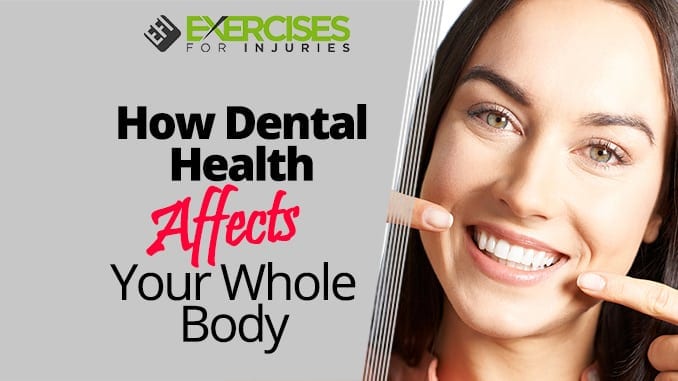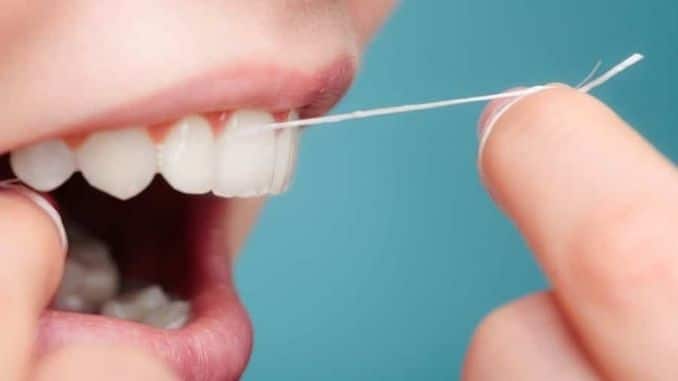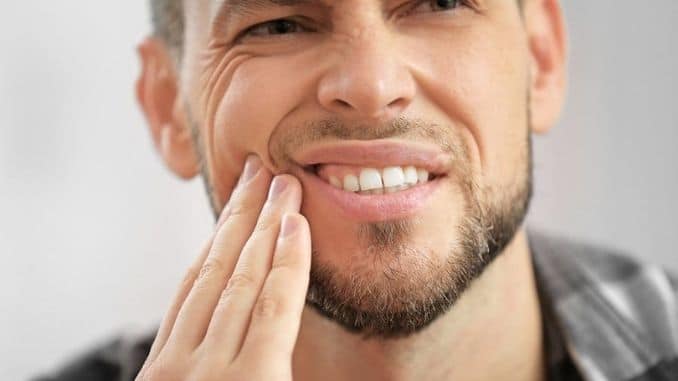
Beyond just a pretty smile, your dental health is a window into your entire body. Dental hygiene can even have an impact on your heart health. Like it or not, your mouth is full of bacteria that may gain entry into the rest of your body. What happens then? Let’s find out and also learn how to maximize your health through good dental hygiene. Plus, we’ll even explore the possibility that you can reverse cavities by natural methods.
Thousands Of Years Looking At Teeth
The practice of dentistry can be traced back to at least 5000 B.C. when the ancient Sumerians described tooth decay as being caused by “tooth worms.” Although there’s no such thing, they weren’t that far off in identifying that living organisms (bacteria) contribute to cavity formation. In 1873, Colgate had mass-produced the first toothpaste, and toothbrushes followed a short time later. Before toothbrushes, people used cloth, salt, and chalk to clean their teeth.
Bacteria Party House
The human mouth is teeming with bacteria at all times. In fact, if you get bit by a person, you’re more likely to get a skin infection than if you are bitten by a dog. In a normal state of health, the bacteria in your mouth (sometimes called oral flora) live in a state of equilibrium. This means they don’t cause any harm. These microorganisms don’t live in your mouth just for the fun of it. They also help prevent other harmful organisms from getting into your body or growing in your mouth.
Healthy amounts of saliva and a pH between 6.75 and 7.25 help keep your mouth’s ecosystem in balance. A special biofilm is formed in your mouth and acts as a kind of protective coating. Bacteria are an important part of this biofilm. If you tried to sterilize your mouth, it would be impossible. Plus, it would set up a situation where other harmful germs could enter, grow and take over.
When Things Go Wrong
The normal oral environment can be disrupted if any of the normal factors are modified. For example, a reduced saliva flow can change your oral flora radically.
Saliva may be reduced by:
1. Medications
Decongestants, antihistamines, painkillers, diuretics and antidepressants
2. Salivary Gland Disorders
Infections, Sjogren’s syndrome and autoimmune diseases
3. Physical Obstruction
Poorly fitting dentures and tumors
4. Age
Saliva secretion slows as you get older
5. Radiation Therapy For Cancer
Also, any health condition that affects your body’s natural defense mechanisms, such as diabetes, can make problems that originate in your mouth worse.
How Heart Health Is Related To Dental Health
Your heart has a special lining (endocardium) within its chambers and also covers the heart valves. When this lining gets infected and inflamed, it’s called endocarditis. This is a serious, life-threatening condition.
Symptoms of endocarditis may include:
- Fever and chills
- A new heart murmur (sound of blood moving in your heart)
- Tiredness
- Body aches and joint pain
- Night sweats
- Trouble breathing
- Chest pain, especially when you breathe
- Swollen feet, legs or abdomen
Normally, bacteria are kept out of the heart and bloodstream, but sometimes it can enter through your mouth. For example, plaque on the teeth can build up and lead to gingivitis, which is an inflammation of the gums. When your gums are inflamed, they can bleed and allow bacteria to enter your bloodstream.
Does Flossing Help?
You might find this as a surprise, but there has never been any research showing flossing your teeth is beneficial in any way. While it may be helpful, there is no scientific proof of its effectiveness. Here is where we encounter a problem.
One of the ways to prevent bacteria from entering your body is by maintaining good oral hygiene. Traditionally, flossing has been recommended as part of good tooth and gum care. However, flossing may lead to gum trauma and bleeding, thus opening the door to bacteria in your blood.
For people who have artificial heart valves or certain heart valve disorders, the risk for endocarditis is higher, and good dental care is essential. Still, you have to be careful not to be too aggressive when cleaning your teeth. Plus, these people should take antibiotics before they have certain dental health procedures to lower the risk of infection.
The current recommendation for the general population seems to be that flossing may be beneficial, but the evidence is not conclusive.
More Heartache
Besides endocarditis, your tooth and gum health may also affect the arteries that supply blood to the heart.
There are basically two types of gum inflammation that can occur:
1. Gingivitis
Painful, red, swollen gums
2. Periodontitis
Gingivitis with infected pockets of pus
Now, besides potentially infecting the lining of the heart, bacteria like streptococci from gum infections may infect the heart arteries. In fact, some studies show that gum infection leads to an increased risk of heart attack and stroke. Still, it’s not like a bunch of bacteria plug up your arteries. The theory is that in response to infection, inflammation occurs within the arteries. Inflammation is what contributes to artery narrowing and blockage.
Looking at things from a more holistic view, people with poor oral hygiene often have poor health overall. For example, smoking is harmful to your teeth and gums.
Factors That Affect Oral Health
There are other disorders that can be harmful to your oral health. We already mentioned diabetes and gum disease appears more often in diabetics. It seems as if the process is a two-way street. Why? Better gum care can improve blood sugar in those with periodontal disease.
People who are infected with HIV/AIDS also have a higher risk of mouth ulcers and sores. In some cases, these painful lesions may increase the risk for other health problems.
Osteoporosis — or thinning of the bones — could be linked to periodontal bone loss and tooth loss. This disease is especially more common in women as they age. Adequate calcium and vitamin D intake earlier in life may help prevent osteoporosis.
Finally, it appears that persons with Alzheimer’s disease also have an increased incidence of poor oral health. This could be due to lack of oral hygiene, such as forgetting to brush your teeth. However, other disease-related factors might be involved as well.
Can Cavities Be Reversed Naturally?
In any discussion about oral health, the typical advice about brushing after meals should be a no-brainer. At this time, the value of flossing is less clear, but it may provide some benefit. Plus, we know that cavity-forming bacteria thrive on sugars and starches that are left on the surface of our teeth. These bacteria eventually form acids that eat away at the tooth enamel.
Moreover, there are several other ways to care for your teeth, and nutrition plays a big role. We’ve already seen how calcium and vitamin D can help keep teeth healthy.
These other lesser-known factors also influence tooth decay:
-
Lack Of Minerals In The Diet
Calcium, magnesium and phosphorus deficiencies.
-
Lack Of Fat-Soluble Vitamins
Vitamins A, D, E and K.
-
Eating Too Much Of Phytic Acid-Rich Foods
Processed grains and unfermented soy products.
In one study, people who consumed a grain-free diet with nutrient-rich foods like vegetables, fruits, meat, and milk and took vitamin D supplements had cavities reversed on their own. Raw milk is a rich source of many of the minerals and vitamins that are essential to oral health.
Ways To Improve Gum Health
In many ways, the advice to keep teeth healthy also applies to your gums.
Here are some other strategies you can use for optimal gum health:
1. Antioxidants
Eat foods like blueberries, artichokes, salmon, mackerel and sardines
2. Chewing Sugarless Gum With Xylitol
Helps prevent bacterial buildup
3. Eat Raw Vegetables And Apples
Natural way to clean teeth
What About Oil Pulling?
Some health care specialists also recommend the method of oil pulling which has been around for centuries. Ancient texts from India describe the practice starting thousands of years ago. It’s believed that oil-soluble toxins are removed from your mouth through oil pulling.
It’s very easy to do. You swish around a tablespoon of oil in your mouth for about 15 to 20 minutes before brushing your teeth in the morning. Spit out the oil before you brush. Some of the benefits may include the prevention and cure of gingivitis. The best oils to use are sesame oil or coconut oil.
Conclusion
A healthy mouth reveals a healthy lifestyle. Besides good hygiene, solid nutrition also helps maintain a wholesome smile. Even your heart will thank you for taking good care of your teeth and gums.
If you want to increase the natural healing power of your body to achieve a more energetic, leaner and younger you, then check out the Best Foods That Rapidly Slim & Heal in 7 Days program, here!




